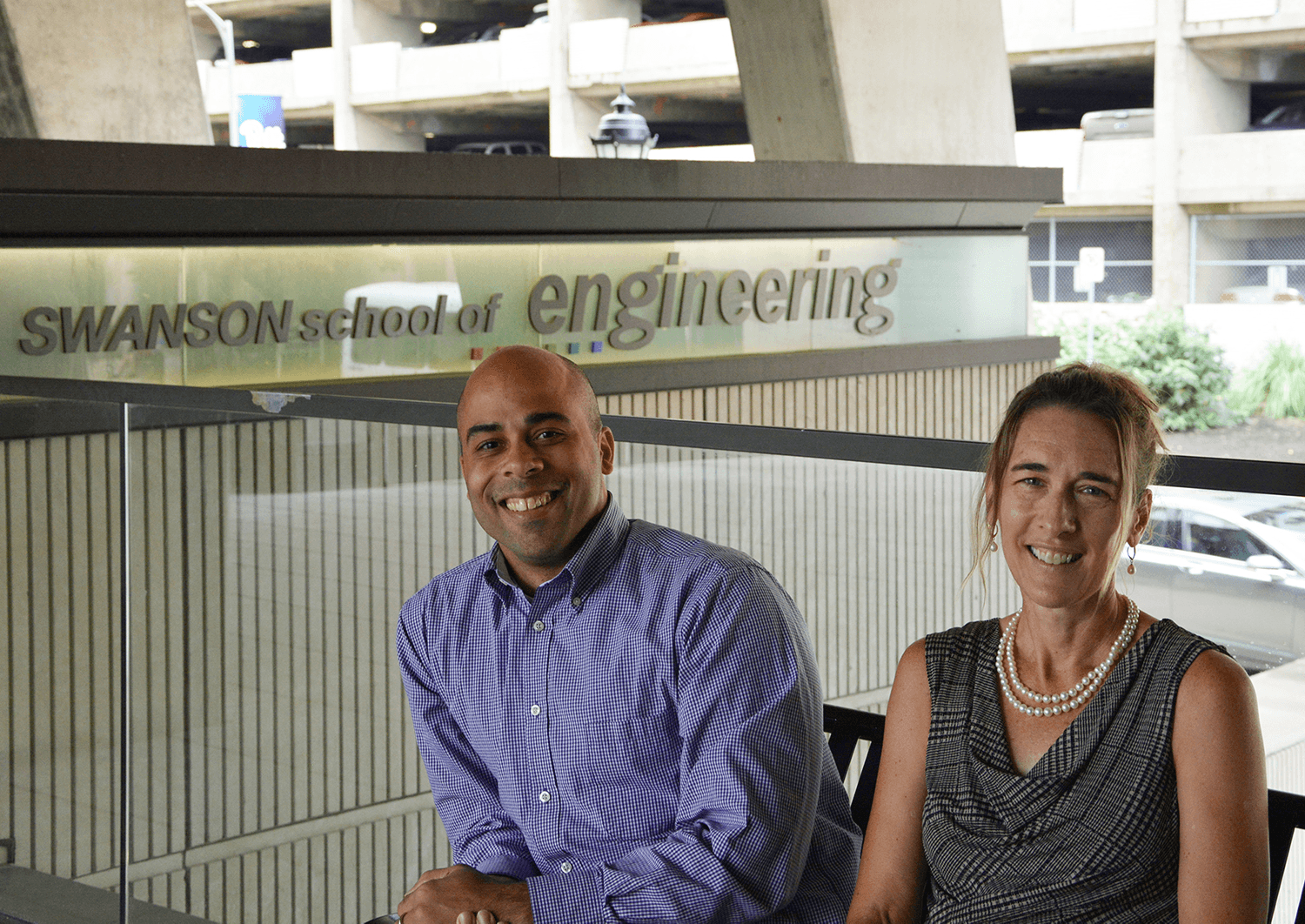Measuring Student Motivation and Stress During a Pandemic
Renee Clark and Samuel Dickerson receive an NSF award for a longitudinal study on student motivation and stress during COVID-19 remote learning
PITTSBURGH (Sept. 17, 2020) … As universities continue to adapt to the evolving situation surrounding the coronavirus pandemic, researchers from the University of Pittsburgh want to understand how the ever-changing learning environment affects student motivation, stress, and valued experiences.
Two Swanson School of Engineering faculty, Renee Clark and Samuel Dickerson, received an award from the National Science Foundation to lead a longitudinal study to determine the degree to which undergraduate engineering students are academically motivated several semesters after the start of the COVID-19 pandemic.
The team believes that the new safety measures implemented on campus may affect “valued college experiences” that increase motivation and help students maintain a work-life balance. They will survey which university experiences students value most and examine how the pandemic has impacted those experiences. They will also study students’ perceived motivation and stress levels using validated instruments in the semesters following the COVID-19 rules and restrictions.
Mary Besterfield-Sacre, the Nickolas A. DeCecco Professor of Industrial Engineering and Associate Dean for Academic Affairs, initiated this study at the start of the COVID crisis with a team of undergraduate students and continues to provide necessary direction and mentoring to Dickerson and Clark and they design and administer the study together.
“The scope of this project is only step one,” said Dickerson, assistant professor of electrical and computer engineering at Pitt. “We suspect that students are less motivated, but with this study, we can figure out what contributed to this and determine how to mitigate it in case we need to transition to a fully virtual experience again.”
Conversely, the group also wants to know if some students prefer the self-paced, flexible nature of remote learning.
They have created an online assessment tool with the help of Pitt undergraduate students. Participants will be able to choose up to five “valued college experiences” and then rate the degree to which COVID-19 has impacted those experiences.
“College in and of itself is stressful, but I generally find what is offered on and around campus to really complete the college experience and give me the time to enjoy myself while on campus,” said Alexander Cohen, a junior history major at Pitt who is contributing to the project.
“I believe that incorporating the undergraduate viewpoint on this project helps us consider what experiences are valued the most and keep us in a healthy frame of mind, both mentally and emotionally,” he continued.
They will use the MUSIC Model of Motivation by Brett Jones, professor of educational psychology at Virginia Tech, and his colleagues to formally measure academic motivation. They will similarly assess stress with the Perceived Stress Scale, a well-known, established instrument by Sheldon Cohen, Robert E. Doherty Professor of Psychology at Carnegie Mellon University, and his colleagues.
“This instrument measures students’ perceived stress and also will provide us with baseline data from college students who were previously studied,” said Clark, assistant professor of industrial engineering. “We can use these data to determine where our students’ stress level is in comparison and try to figure out the top stressors.”
Given the unpredictable nature of the pandemic, Clark and Dickerson have created a flexible study that can adapt to the changing structure of higher education.
“It’s more than just a survey,” said Dickerson. “We are collecting real data that we hope will reveal ways to improve the college experience and motivation and decrease stress for students who, unfortunately, found themselves in this unprecedented situation.”
# # #
Contact: Leah Russell

